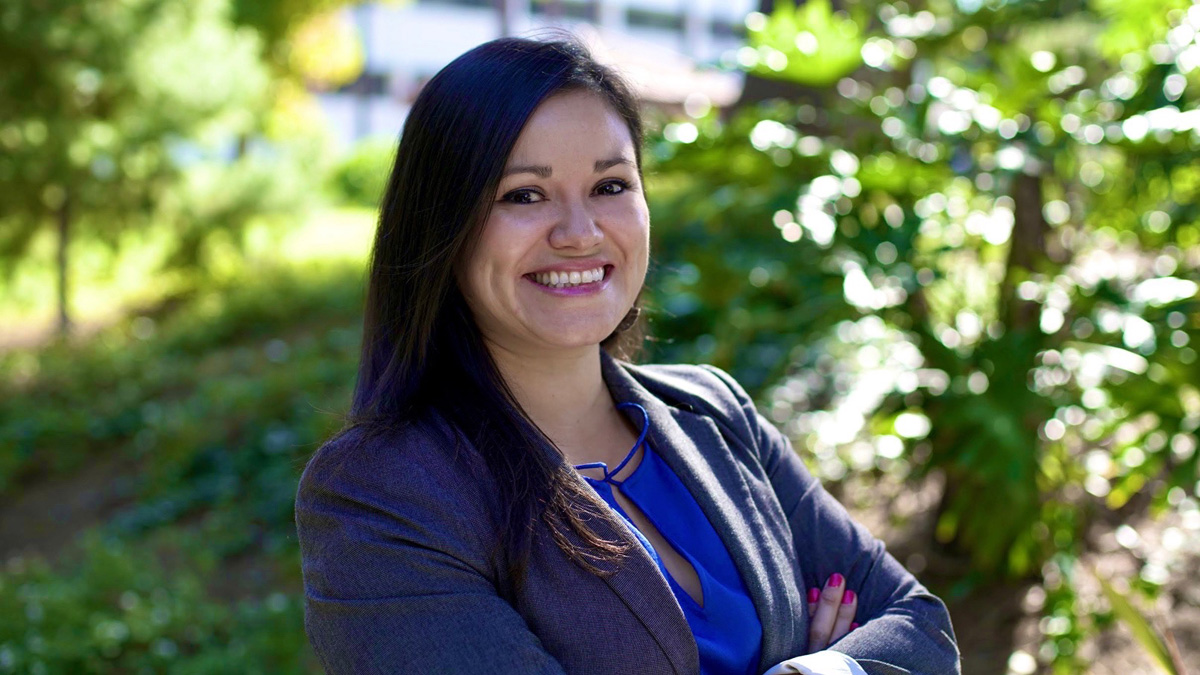Vasquez Pilots Program to Engage Community College Students in Research

Dr. Marissa Vasquez recalls attending a national conference early in her career when a question was posed to the audience: How can we get more research about people of color in higher education?
“I was one of a handful of women of color in the room,” recalls Vasquez, now an assistant professor in San Diego State University’s Department of Administration, Rehabilitation and Postsecondary Education. “Looking around, I just had that light-bulb-going-off moment.”
Suddenly, so much was illuminated. She thought about how most people doing social science research on people of color were people of color themselves. Then she considered how high numbers of students of color start their academic journeys in community college, where a focus on student research is often absent.
“I realized that if I want to see this room filled with more people like us, and I know our Latino and our African American students are starting their education at community colleges, then why aren't we talking about undergraduate research in the community college?” said Vasquez, herself an alumna of Southwestern College in her hometown of Chula Vista. “I started to see the potential for a pipeline.”
Vasquez recently successfully piloted an initiative that she hopes will lay a strong foundation for that pipeline. The SEMILLAS Research Fellowship Program — supported by SDSU’s University Grants Program — started over the summer with a cohort of six community college students receiving a six-week crash course in social science research. The students — all of whom were Latinx and either women or gender nonconforming — were recruited from Imperial Valley College, Southwestern College, Fresno City College and MiraCosta College and received a small stipend to participate. For many of them, Vasquez and her research team were the first people of color with doctoral degrees they had ever met.
During weekly sessions that ran as long as two hours, the students were taught the basics of research by Vasquez and her team. They also met with mentors, journaled about their experiences and heard from guest speakers — many of whom were social science researchers of color.
“I think it de-mystified this idea of research and opened up the recognition of what social science is for a lot of students,” Vasquez said. “I also think it helped the students see themselves reflected in the research and their experience. And our speakers helped humanize it. You're not just reading a paper, but you get to meet the person who wrote it and they might have shared experiences or identities with you.”
It all culminated with fellows conducting their own research projects on student-chosen topics, which ranged from returning mothers in higher education to vaccine hesitancy in minoritized communities. They then presented their findings at a mini-research symposium with administrators from their community colleges in attendance.
“We let them choose their own topics and they did amazing work,” Vasquez said. “We were sitting there in awe. I told them after, ‘You should know that the work you're doing is what my doctoral students are doing for their dissertation proposals.’”
SEMILLAS built off Vasquez’s experience from 2015-2018 running the Aztec Research Fellowship Program, which provided research opportunities for SDSU transfer students interested in doing research on students of color. Vasquez said she will seek to bring Semillas back for 2022, and is looking for ways she can increase its scope and impact in the future.
“I could definitely see their confidence increase throughout the fellowship,” she said of the fellows.
“Imagine how much more we can do with them if we had them for a whole year.”
